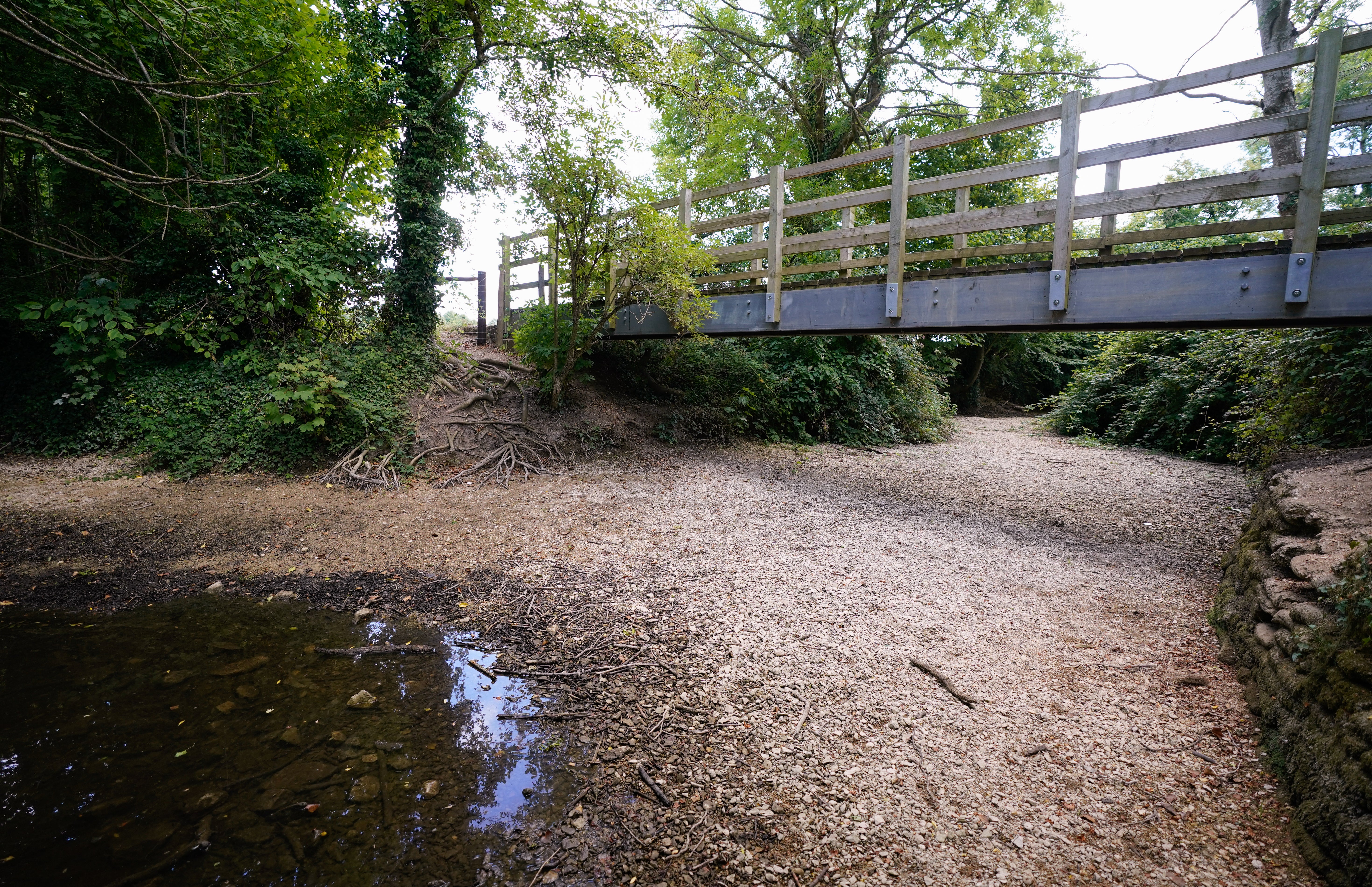Rivers face ‘horror story’ as country heads for drought, say campaigners
River Action has urged the Government to act as low water levels mean more concentrated pollution in Britain’s rivers.

Your support helps us to tell the story
From reproductive rights to climate change to Big Tech, The Independent is on the ground when the story is developing. Whether it's investigating the financials of Elon Musk's pro-Trump PAC or producing our latest documentary, 'The A Word', which shines a light on the American women fighting for reproductive rights, we know how important it is to parse out the facts from the messaging.
At such a critical moment in US history, we need reporters on the ground. Your donation allows us to keep sending journalists to speak to both sides of the story.
The Independent is trusted by Americans across the entire political spectrum. And unlike many other quality news outlets, we choose not to lock Americans out of our reporting and analysis with paywalls. We believe quality journalism should be available to everyone, paid for by those who can afford it.
Your support makes all the difference.The UK’s rivers face “a horror story that just gets worse and worse” amid fears the country is heading for a drought, a campaign group has said.
Charles Watson, founder and chair of River Action, said reduced water levels meant the UK’s rivers would become more polluted and urged the Government to act to prevent an “ecological emergency”.
He said the country’s rivers faced “a classic tipping point”, adding: “We have not seen a situation like this.”
River Action has so far largely focused on the issue of pollution, raising concerns about the impact of intensive farming on waterways such as the River Wye.
Agricultural pollution harms rivers through a process called eutrophication, in which nutrients washed from fields into waterways cause algal blooms that harm or kill plants, fish and other wildlife.
But Mr Watson said falling water levels added a new dimension to the threat to the UK’s rivers.
He said: “The flows are drying up, which is disastrous for wildlife.
“If the flows really slow down, the ecology of the rivers is being killed and, meanwhile, the concentration of the pollution that’s all still there (will increase).”
Using the example of the River Wye, he said the river’s salmon population was only saved during July’s heatwave by Natural Resources Wales’ decision to open the Caban Coch reservoir, feeding the Wye and raising its water levels.
Mr Watson said: “You can do that once. You can’t do that every time there’s a drought.”
According to the Environment Agency’s monitoring equipment at Hereford Bridge, the river’s water level had fallen to just 0.04 metres on Tuesday afternoon, well below the top of its normal range of 3.3m.
Urging the Government to take action, he said water companies had been too slow to stop leaks and criticised a request by Southern Water to take more water than normally allowed from the River Test in Hampshire.
Mr Watson added: “We know how to do emergencies. We stopped the banking system from collapsing, we handled the pandemic, we’ve supported the Ukrainians – why the hell can’t we deal with this ecological emergency?”
Prolonged dry weather and high temperatures have prompted South East Water, Southern Water and Thames Water to announce hosepipe bans to conserve water, while the UK Centre for Ecology and Hydrology forecasts exceptionally low water levels in southern, central and eastern England until October.